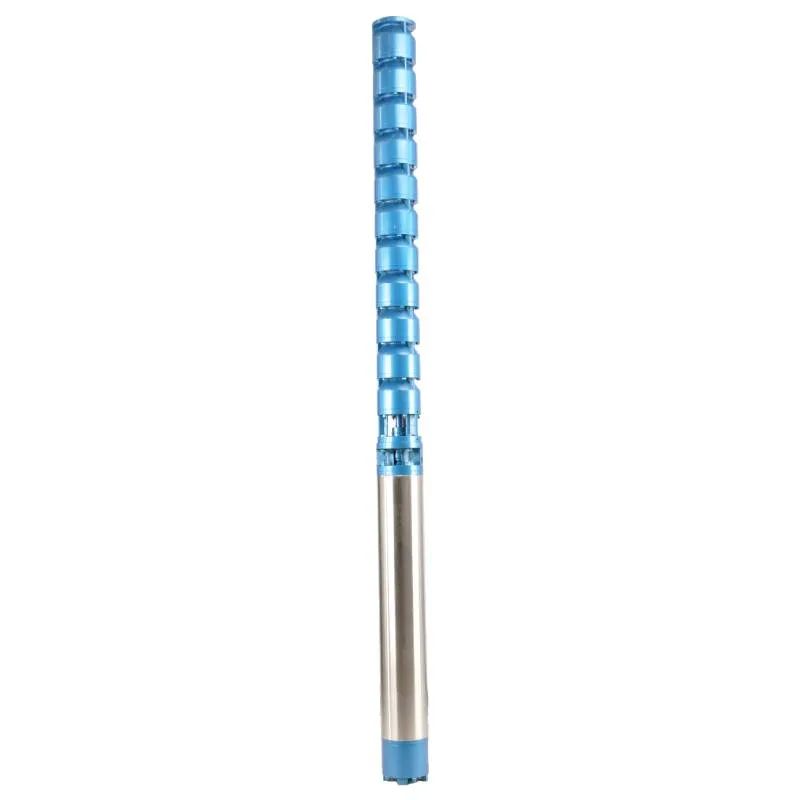Dec . 06, 2024 15:02 Back to list
Durable Submersible Pump for Chemical Resistance in Sump Applications
Understanding Chemical Resistant Submersible Sump Pumps
In industrial and commercial settings, managing liquids efficiently is pivotal, particularly when dealing with hazardous substances. Chemical resistant submersible sump pumps are engineered specifically to handle corrosive or aggressive liquids, offering a reliable solution for a wide range of applications.
What is a Submersible Sump Pump?
A submersible sump pump is a device designed to be submerged in liquids for the purpose of pumping them out. Unlike standard pumps, submersible pumps are sealed and designed to operate underwater, preventing any liquid from entering the motor and causing damage. These pumps are ideal for removing unwanted water buildup in basements, storm drains, and, crucially, in environments where chemicals may be present.
The Importance of Chemical Resistance
When operating in environments that handle chemicals, the materials utilized in construction, seals, and coatings of the pump are crucial. Regular sump pumps may be made of materials that can corrode or degrade when exposed to harsh chemicals, leading to failure and potential environmental hazards. On the other hand, chemical resistant submersible sump pumps are constructed from materials, such as stainless steel, high-density polyethylene, or specialized alloys, that withstand corrosive substances without compromising performance.
Applications of Chemical Resistant Sump Pumps
1. Industrial Drains and Wastewater Management Factories often deal with various chemical waste products. A chemical resistant pump ensures that these materials can be safely evacuated without damage to the equipment or the environment.
2. Chemical Processing Plants In facilities where chemicals are mixed, stored, or processed, submersible sump pumps play an essential role in managing spills and maintaining safe working conditions.
3. Agriculture and Irrigation Certain agricultural practices involve the use of fertilizers and pesticides. Chemical resistant pumps are crucial in managing irrigation systems while preventing damage from corrosive agents.
4. Mining Operations Extracting minerals can involve the use of harmful chemicals. Submersible sump pumps are utilized in mine dewatering systems to remove water that may be mixed with these hazardous substances.
Features to Consider
chemical resistant submersible sump pump

When selecting a chemical resistant submersible sump pump, several features should be considered to ensure optimal performance and longevity
- Material Composition Ensure that the pump is made from suitable materials like thermoplastic, stainless steel, or other alloys that resist corrosion.
- Flow Rate and Head Height Evaluate the required flow rate and height to which the liquid needs to be pumped. This will determine the size of the pump needed for your specific application.
- Motor Power A powerful motor is essential for the efficient operation of the pump, especially in environments with high viscosity liquids.
- Seal Quality Verify that the pump has high-quality seals to prevent any leakage of the chemicals, which could compromise both the pump and the working environment.
- Automatic Float Switch Some models come with an automatic float switch that can turn the pump on or off based on the water level, allowing for hands-free operation.
Maintenance and Safety
Regular maintenance of chemical resistant submersible sump pumps is critical for ensuring reliability and extending the life of the equipment. This includes
- Routine inspections for wear and tear. - Checking seals and gaskets for any signs of damage or degradation. - Cleaning the impeller and intake screen to prevent blockages.
Additionally, operators should always follow safety protocols due to the hazardous nature of chemicals handled by these pumps. Proper training in handling, maintenance, and emergency response can mitigate risks associated with chemicals.
Conclusion
Chemical resistant submersible sump pumps are more than just tools for managing liquids; they are vital components in protecting the environment and ensuring safety in chemical handling. By understanding their features, applications, and maintenance needs, industries can make informed decisions that will enhance operational efficiency and compliance with regulatory standards. As technology advances, the effectiveness and reliability of these pumps will continue to evolve, offering even greater solutions for handling corrosive substances.
-
Submersible Water Pump: The Efficient 'Power Pioneer' of the Underwater World
NewsJul.01,2025
-
Submersible Pond Pump: The Hidden Guardian of Water Landscape Ecology
NewsJul.01,2025
-
Stainless Well Pump: A Reliable and Durable Pumping Main Force
NewsJul.01,2025
-
Stainless Steel Submersible Pump: An Efficient and Versatile Tool for Underwater Operations
NewsJul.01,2025
-
Deep Well Submersible Pump: An Efficient 'Sucker' of Groundwater Sources
NewsJul.01,2025
-
Deep Water Well Pump: An Efficient 'Sucker' of Groundwater Sources
NewsJul.01,2025
-
 Submersible Water Pump: The Efficient 'Power Pioneer' of the Underwater WorldIn the field of hydraulic equipment, the Submersible Water Pump has become the core equipment for underwater operations and water resource transportation due to its unique design and excellent performance.Detail
Submersible Water Pump: The Efficient 'Power Pioneer' of the Underwater WorldIn the field of hydraulic equipment, the Submersible Water Pump has become the core equipment for underwater operations and water resource transportation due to its unique design and excellent performance.Detail -
 Submersible Pond Pump: The Hidden Guardian of Water Landscape EcologyIn courtyard landscapes, ecological ponds, and even small-scale water conservancy projects, there is a silent yet indispensable equipment - the Submersible Pond Pump.Detail
Submersible Pond Pump: The Hidden Guardian of Water Landscape EcologyIn courtyard landscapes, ecological ponds, and even small-scale water conservancy projects, there is a silent yet indispensable equipment - the Submersible Pond Pump.Detail -
 Stainless Well Pump: A Reliable and Durable Pumping Main ForceIn the field of water resource transportation, Stainless Well Pump has become the core equipment for various pumping scenarios with its excellent performance and reliable quality.Detail
Stainless Well Pump: A Reliable and Durable Pumping Main ForceIn the field of water resource transportation, Stainless Well Pump has become the core equipment for various pumping scenarios with its excellent performance and reliable quality.Detail
